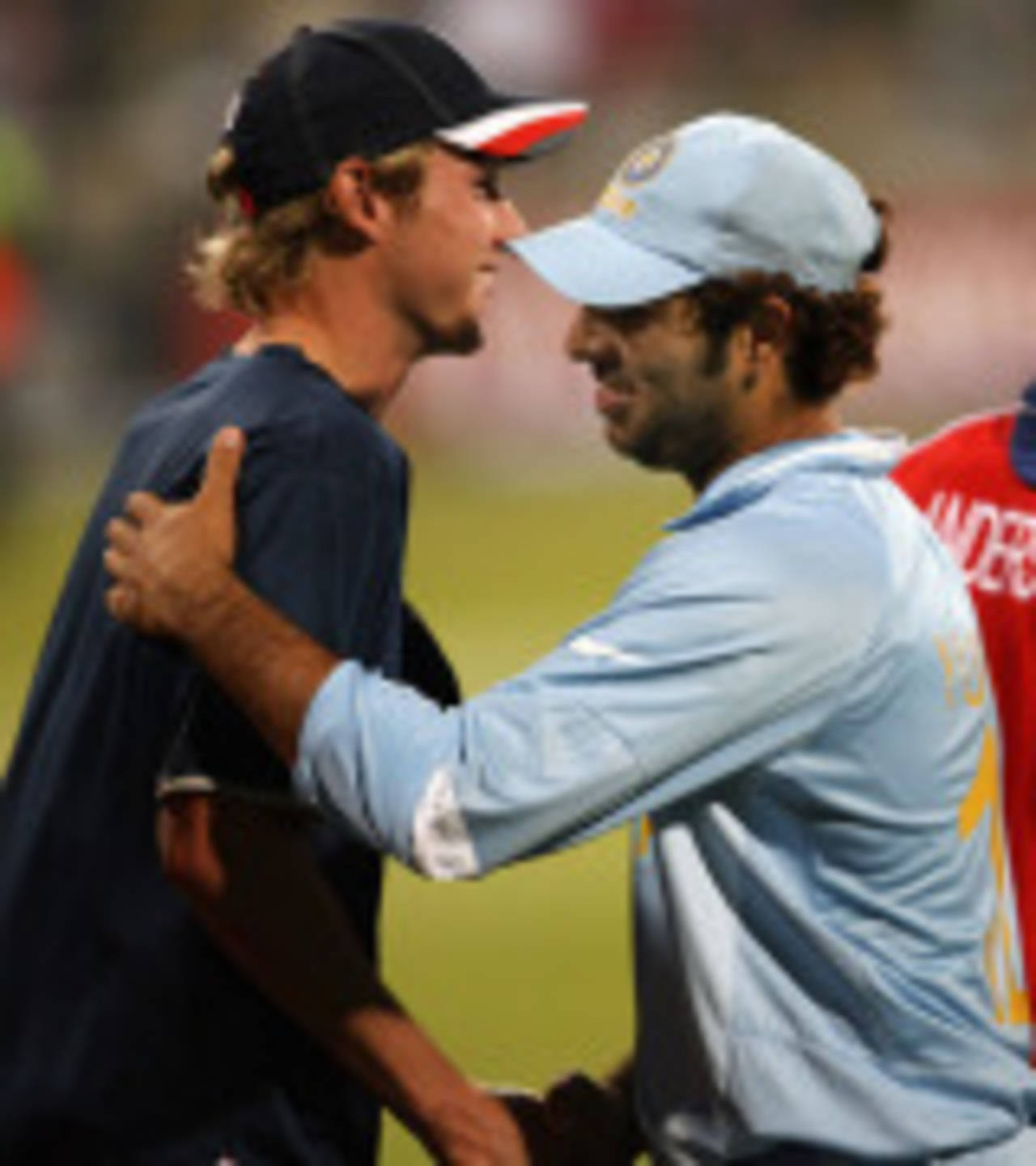The psychological impact of a batting onslaught
Stuart Broad recently joined the list of bowlers who were hit for six sixes in an over when he was taken apart by Yuvraj Singh in the Super Eights stage of the ICC World Twenty20
ESPNcricinfo staff
25-Feb-2013

Getty Images
Stuart Broad recently joined the list of bowlers who were hit for six sixes in an over when he was taken apart by Yuvraj Singh in the Super Eights stage of the ICC World Twenty20. The Times of India’s Avijit Ghosh analyses the psychological impact of being on the receiving end of such an onslaught.
London-based sports psychologist Victor Thompson explains. "The main risk is that the bowler will interpret the sixes as evidence that he has failed as a bowler," he says. According to the sports psychologist, a bowler should focus on the challenge and not the threat of the situation to prevent from crumbling psychologically.
"He should analyse his delivery and look for ways to test and beat the batsman. He must keep his body language confident and positive: upright, purposeful, chest high. He should also recall similar situations before where he has had success and shown grit against a challenging batsman. Other techniques can also help but these can give most bowlers a boost," Thompson says in an email interview.
Florida-based performance psychologist John F Murray compares the event to a pitcher getting hammered in baseball. "The effect depends entirely on a player’s experience, self-confidence, maturity and resilience. If a player is high in these factors then catastrophic failure has little effect and the player usually recovers well and may even return with increased confidence and focus," he says.
Ashok Ganguly is an editorial assistant at Cricinfo